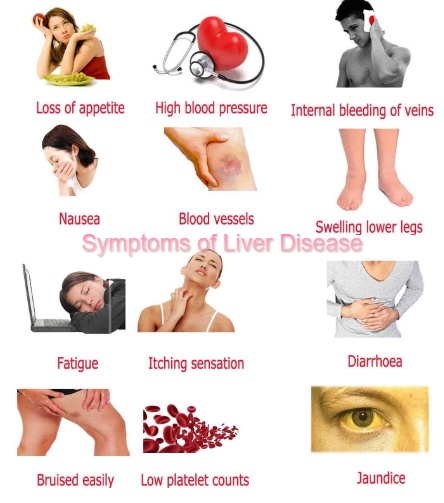Healthy Living
Liver Disease – Know The Symptoms To Be Safe

Do you get swollen ankles and legs constantly? Are you observing yellow skin or the frequent skin rashes? These could be the early symptoms of an underlying liver disease. Liver disease is any disturbance of liver function that causes illness.
Liver is one of the vital organs which keeps the body healthy. By converting the nutrients into chemicals required by the body, liver helps to turn food into energy and it detoxifies waste from the body.
Liver disease can arise due to various reasons ultimately impacting the functioning of the entire body. Many conditions can affect the liver leading to liver disease.
- Hepatitis: This is a viral infection which causes inflammation thus leading to liver damage. There are 5 types of hepatitis – hepatitis A, hepatitis B, hepatitis C, hepatitis D, hepatitis E where B, C, D can become chronic if left untreated.
- Fatty liver disease: In this condition, fat builds up in the liver, either body produces too much fat or doesn’t metabolize fat efficiently. Drinking excessive alcohol can lead to alcoholic fatty liver disease whereas obesity, high blood sugar, insulin resistance can be the major cause for nonalcoholic fatty liver disease. If the condition is not diagnosed or treated early, it can lead to cirrhosis and liver failure.
- Genetic reasons: Hereditary conditions like Hemochromatosis,where the body stores more iron, wilson’s disease where liver absorbs copper instead of discharging it can also lead to liver disease.
- Autoimmune conditions: Here body’s immune system mistakenly attacks the healthy cells.
- Cirrhosis: It is the severe scarring of the liver and advanced stage of liver disease.
With few signs and symptoms, we can evaluate if the liver is functioning well.
Below are the 6 commonly known signs of liver disease:
- Extreme tiredness: Although the underlying pathogenesis of tiredness in liver diseases is yet to be defined clearly, fatigue is considered as one of the common symptoms associated with liver disease.
- Abdomen swelling: Swelling in the abdomen indicates a condition called ascites. Due to the malfunctioning of the liver, there is a significant imbalance in the body protein and other compounds, which leads to an abnormal build-up of fluid in the abdomen. The most common cause of ascites is the cirrhosis of the liver. As the condition worsens, it may lead to symptoms like swelling of hands, feet and ankles.
- Loss of appetite: Liver plays a crucial role in the digestive system. Liver disease can lead to loss of appetite and some may even lose weight. Digestive discomfort, pain in the abdomen and other symptoms are associated with liver disease.
- Bruising: Protein plays a crucial role in aiding blood clot after injury. When the liver is not functioning properly, there will not be enough protein to make the blood clot. As a result of this, individuals with liver disease may experience excessive bleeding and easy bruising.
- Nausea: Based on the extent of the damage to the liver, nausea can be experienced for a short time or prolonged. When the liver’s ability to eliminate toxins is diminished, there is accumulation of waste products in the body, leading to nausea.
- Diarrhea: Liver is tasked to break down and process the food we eat. So, it is common that when the liver is not in good health, the digestion process takes a beating thus causing diarrhea. Pale stools and black tarry stools are also associated with liver disease.
Treatment options for liver diseases:
Many treatment options are available for liver diseases. Remember that diagnosis at an early stage can make a lot of difference. Some liver problems can be treated with simple lifestyle changes like reducing intake of alcohol, reducing weight, following healthy diet etc. Others may need medical attention and sometimes surgery too.
Liver transplant surgery:
In advanced cases of liver disease when the vital organ ceases to function, a liver transplant might be the only treatment option left. Having a healthy liver is essential to longevity as liver is responsible for filtering blood and removing toxins from the body.
If you have any signs or symptoms of liver disease, make sure you head immediately to your doctor and get yourself tested. Delaying the treatment for a malfunctioning liver only complicates the condition further. Hospitals are safe to visit as they are taking utmost care and precautions to ensure safety of patients.
By Dr. Raghavendra N, Consultant- Surgical Gastroenterology & Liver Transplant, Columbia Asia Hospital, Hebbal





























